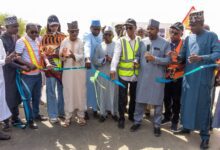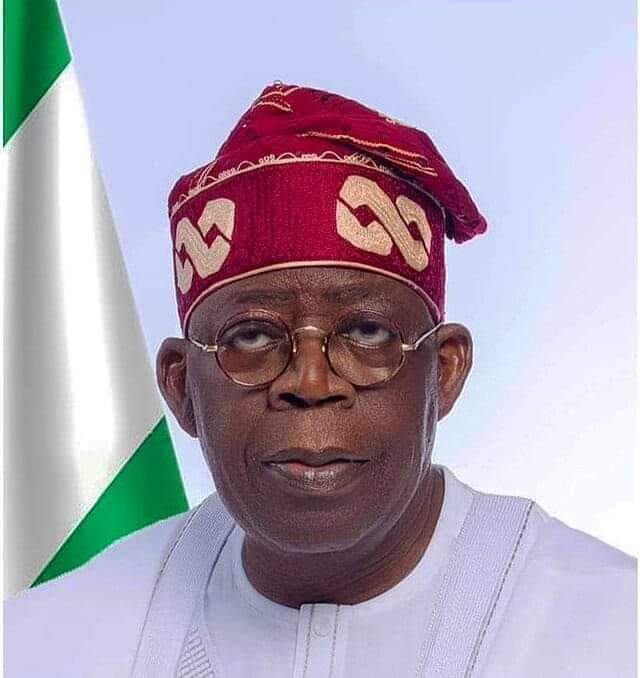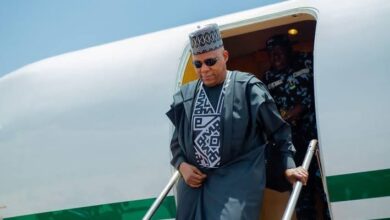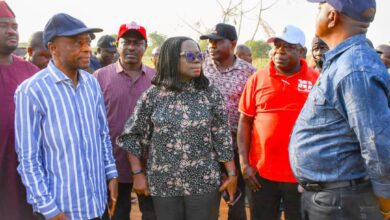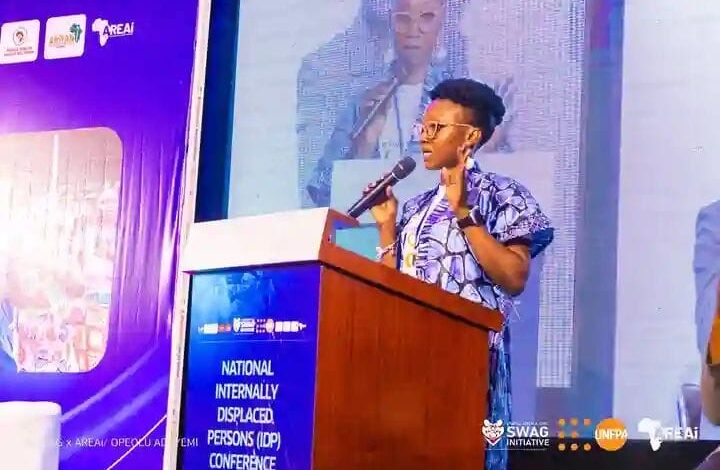
Bedevilled by nearly two decades of insurgency, Nigeria has been considered as one of the countries with the highest number of displaced persons according to the United Nations High Commissioner for Refugees (UNHCR).
The Senior Special Adviser to the President on Community Engagement North Central, Abiodun Essiet disclosed this in her keynote address at the National Internally Displaced Persons (IDP) Conference held in Abuja on Tuesday.
Essiet said the crisis of internal displacement in Nigeria was a complex and multifaceted issue, driven by insurgency, insecurity, and natural disasters.
She noted that the impact of displacement on women and girls were particularly devastating. “They are often subjected to sexual and gender-based violence, exploitation, and abuse. Many are forced to become the primary breadwinners for their families, despite having limited access to education, skills training, and economic opportunities”.
“Women and girls in IDP camps often face significant challenges in accessing basic services such as healthcare, education, and sanitation. They are also at risk of early marriage, child labor, and human trafficking”, she said.
She also emphasized that it was imperative to amplify the voices of women and girls in IDP camps, to ensure that their needs and concerns were heard and addressed.
“We must create a platform for them to share their experiences, and to participate in decision-making processes that affect their lives. By doing so, we can ensure that our responses to the displacement crisis are inclusive, effective, and sustainable”, she said.
She however explained that amplifying the voices of women and girls in IDP camps required a multifaceted approach.
“It involves providing them with access to information, education, and skills training. It also involves creating spaces for them to participate in decision-making processes, and to hold leaders accountable for their actions.
“As we move forward, it is essential that we prioritize the needs of women and girls in IDP camps. We must work to address the root causes of displacement, and to provide support and services that meet the unique needs of this population. This includes access to education, healthcare, skills training, and economic opportunities.
“We must also work to prevent sexual and gender-based violence, and to protect the rights of women and girls in IDP camps. This requires a coordinated effort from government agencies, civil society organizations, and international partners. We must work together to provide a comprehensive response to the displacement crisis, one that prioritizes the needs of women and girls”, Essiet said.
On her part, the Executive Director, Stand With A Girl (SWAG) Initiative, Margaret Bolaji-Adegbola underscored the need for partners to come together and collaborate and work towards having integrated services with the IDPs as the center of focus.
“The issues are evolving, so it’s important that the IDPs are at the center of it. They need to talk to the decision makers that is why this conference is very important”, she said.
In her call to action, the Executive Director emphasized that education needs to be accessible and of good quality.
“Let’s begin by making sure girls in IDP camps get quality and safe education.
We need to do so much in sexual and reproductive health, ensuring that when issues around rape or violence happens, they know who to talk to and also get the right services that are important.
“Government, partners, CSOs should come together and ensure that we are having a better quality of life. It’s good to give them food and other palliatives but beyond that, let’s empower them. We have safe spaces for example where they can get vocational skills. make sure that these interventions are integrated”, she advised.
The National Coordinator, Africa Health Budget Network (AHBN) and Member, National Advocate For Health, Dr. Aminu Magashi explained that the conference aims to raise awareness and visibility for the Internally Displaced Persons in Nigeria.
“There is a lot of insecurity in the country, we need to raise visibility for the concerns of the IDPs across Nigeria”, he said.
Magashi therefore called on the government to ensure adequate protection for the lives and properties of the IDPs across Nigeria and also full funding in budget that provides education, shelter and humanitarian intervention for the IDPs.
He also called on the media, NGOs and philanthropists to work with the government to ensure that the IDPs lives are protected, they are reunited with their families and reconnected with the society in general.
One of the IDPs, Mary Naga recounted how her village was attacked by Boko Haram insurgents 10years ago, forcing her family to relocate to Wasa IDP camp in the Federal Capital Territory (FCT), she recounted how SWAG had helped her continue her education alongsides others in the camp:
“We got to the IDP camp in Wasa 10years ago, people have been helping us with food and clothes. Three years ago, SWAG came to our camp, put us in a school and have been paying our school fees. I am now about to write my Senior Secondary Certificate Examination (SSCE)”, she said.
She also pleaded with the government to restore security in her community so she and others can return home.
The theme of the 2025 National Internally Displaced Persons (IDP) Conference was, “Strategizing Investment: Amplifying the Voices of Women and Girls in Internally Displaced Communities.”


